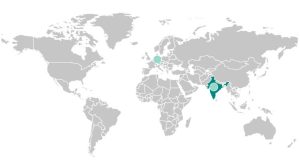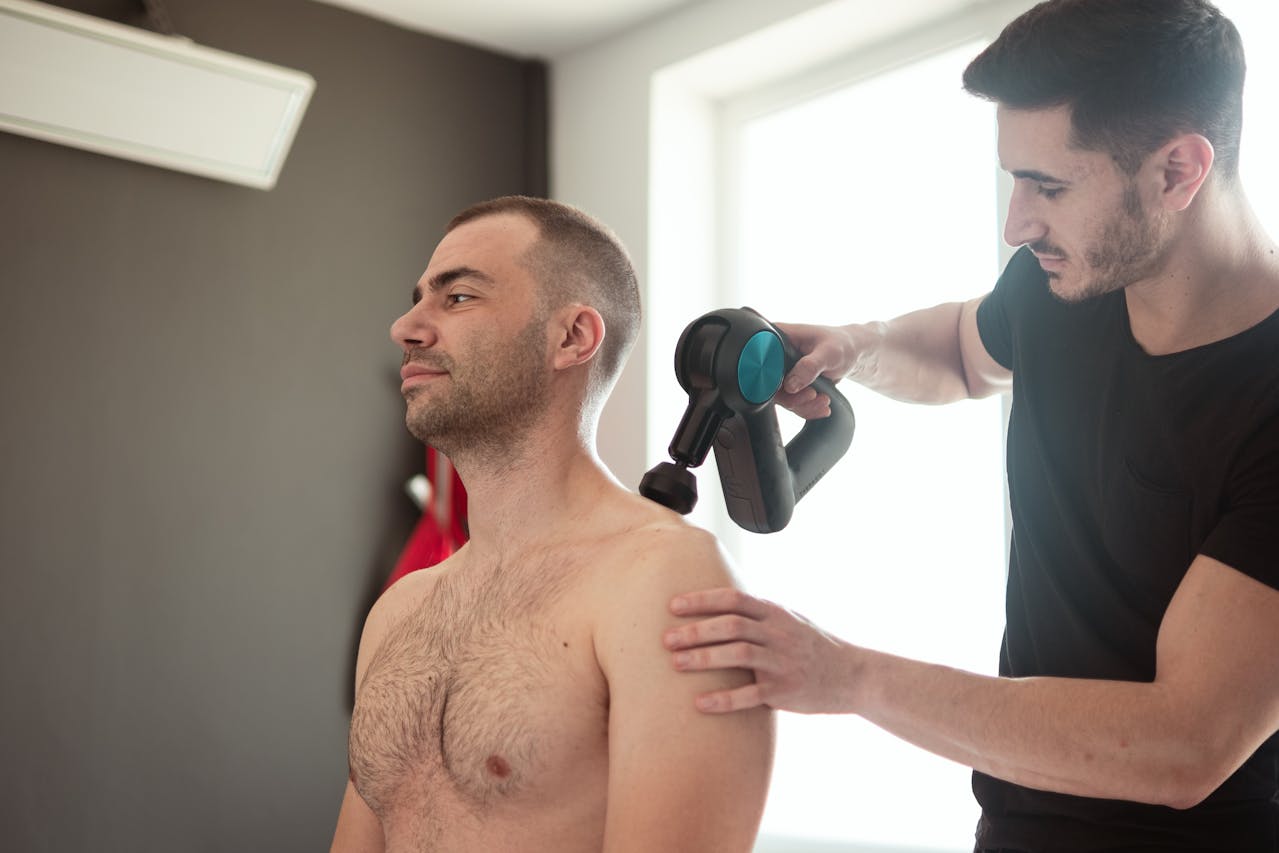Introduction: The need for physiotherapists in Germany
Germany has a growing need for qualified healthcare providers, particularly in the field of physiotherapy. In this context, more and more foreign skilled workers are being sought in order to meet the increasing demand. This blog post gives an overview of how you can become a physiotherapist in Germany as a foreigner in 2024.
Why Germany needs physiotherapists from abroad?
The healthcare industry in Germany is facing a challenge: a shortage of physiotherapists, especially in rural areas. With a steadily aging population, the need for rehabilitative services is increasing. However, access to qualified specialists is limited. Foreign physiotherapists therefore play a crucial role in ensuring comprehensive healthcare.
The advantages of a career as a physiotherapist in Germany
Working as a physiotherapist in Germany offers numerous advantages. An average salary of €2,700 to €3,500 per month, close collaboration with other healthcare professionals and the opportunity for professional development are just a few of them. The German physiotherapy industry values highly qualified specialists and offers attractive working conditions for those who would like to use their skills here.
Physiotherapists in Germany: High demand, facts and figures
According to the German Association for Physiotherapy, around 220,000 physiotherapists practice their profession in Germany. This number illustrates the size of the industry and yet there is still a need for additional staff. Physiotherapists are urgently needed, particularly in rural areas where there is a shortage of healthcare providers.
The average salary of €3,000 to €3,500 per month shows that the financial reward is attractive. This, combined with the opportunity for professional development, makes physiotherapy a promising career field in Germany.
The increasing demand has also led to the number of physiotherapy schools in Germany increasing in recent years. This increase aims to meet the growing need for qualified professionals and ensure that healthcare remains at a high level.
Physiotherapists in Germany often work closely with other healthcare providers such as doctors and occupational therapists to ensure comprehensive patient care. This interdisciplinary collaboration creates a positive working environment and enables holistic care for patients.
There are also numerous opportunities for career development in physiotherapy in Germany. Professional specializations and the option to pursue a master’s degree in physical therapy provide professionals with the opportunity to deepen their skills and expand their professional prospects.
Understanding the German healthcare system: Opportunities for physiotherapists
In order to work successfully as a physiotherapist in Germany, a sound understanding of the German healthcare system is essential. The structure, financing and regulatory requirements play a crucial role in working in this area.
The German healthcare system is characterized by its efficiency, quality and accessibility. Physiotherapists benefit from clear professional standards and a well-organized system that promotes collaboration between different healthcare providers.
Integration into the German healthcare system enables foreign physiotherapists to use their skills effectively while benefiting from the country’s structures and resources. A deeper understanding of German health principles not only facilitates professional integration, but also promotes the enrichment of one’s own skills and experience.
How do you become a physiotherapist in Germany as a foreigner in 2024?
- If you want to work as a physiotherapist in Germany, you must complete three years of state-recognized training. If you completed your training in another country, make sure that Germany recognizes your qualifications.
- If you come from another country, you must have a comparable physiotherapy qualification and license from your home country.
- You must be able to speak German at least at B2 level. A German language certificate at B2 level is a must.
- Have all your documents translated into German by an authorized translator.
- The German Federal Ministry of Health stipulates that physiotherapists with foreign training must have their qualifications checked by the German authorities before they are allowed to work in Germany. You want to ensure that your training and qualifications meet the standards in Germany.
- The type of verification may vary depending on where you completed your training. If you come from a country in the European Union, it is usually easier because the qualifications of other countries are recognized. But if you come from outside the EU, things can get a little more complicated.
- Even though it may be difficult: Germany urgently needs physiotherapists. The Federal Employment Agency states that there will still be around 11,000 positions for physiotherapists to fill in 2023. Even if it is a bit difficult, it is worth it because Germany is a good place to live and work with high salaries.
- And, hey, if you use GoberiaGlobal.de, they can help you and make this complex process easier and get your physiotherapy license to start your new job in Germany!
Conclusion: A promising path for foreign physiotherapists in Germany
Overall, Germany offers promising opportunities for foreign physiotherapists in 2024. The high demand, attractive salaries and diverse opportunities for professional development make physiotherapy a sought-after professional field.
With an understanding of the German healthcare system and qualified training, foreign physiotherapists can be successfully integrated into the German healthcare landscape. This integration not only contributes to personal and professional development, but also makes a valuable contribution to ensuring comprehensive patient care in Germany.



